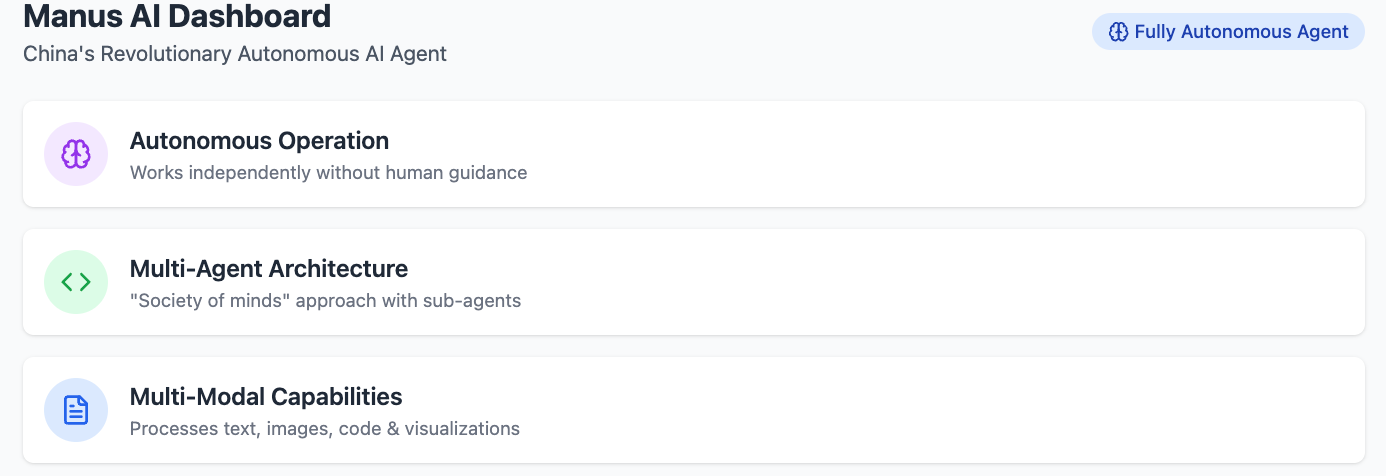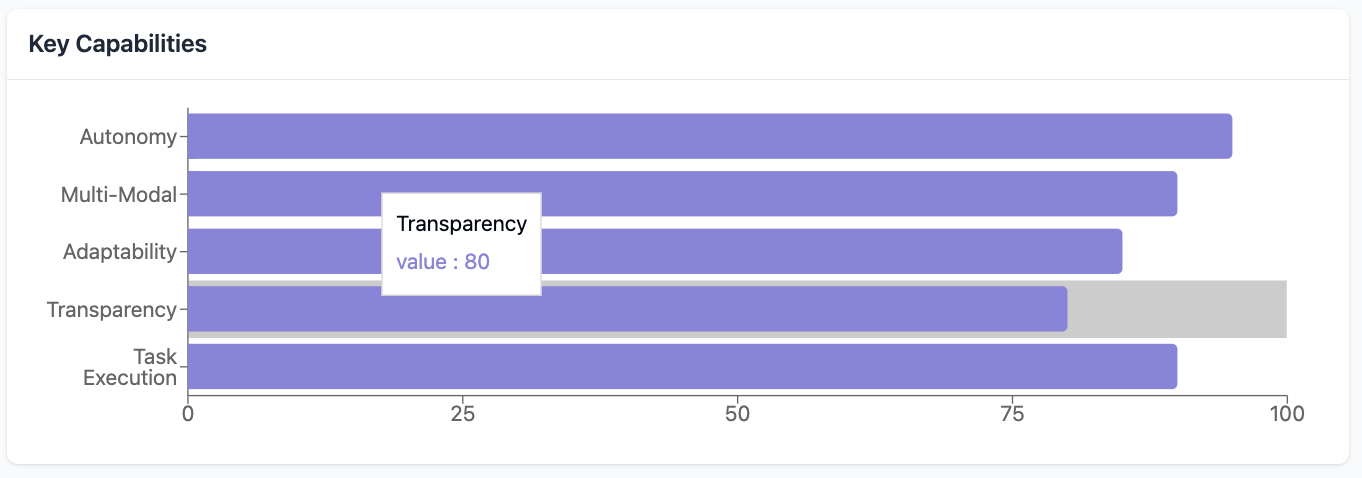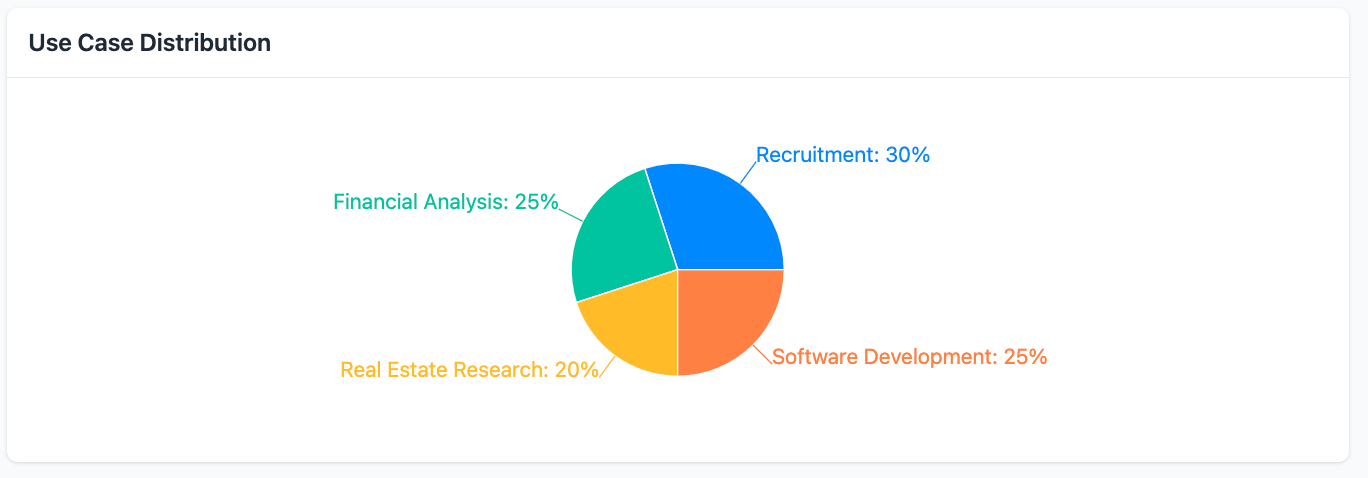Manus Unveiled: China's Revolutionary AI Agent Explained for All Users
Manus Unveiled: China’s Revolutionary AI Agent Explained
In the world of artificial intelligence, a new player has entered the scene and is making waves globally. China’s Manus AI is a major step forward in autonomous AI agents, and Manus represents a significant advancement in AI technology, putting itself at the forefront of what AI can do with minimal human intervention.
Background and Introduction
The rapid advancement of artificial intelligence (AI) has led to the development of autonomous AI agents, which are capable of performing complex tasks independently. One such agent is Manus AI, a fully autonomous AI system that has been making waves in the tech industry. In this section, we will delve into the background and introduction of Manus AI, exploring its capabilities and the implications of its development.
Manus AI is a revolutionary AI agent that operates without human guidance, making it a significant leap forward in AI technology. Unlike traditional AI systems, Manus AI does not require human input to function, allowing it to perform tasks autonomously. This capability has far-reaching implications for various industries, including finance, healthcare, and education. By eliminating the need for constant human oversight, Manus AI can streamline operations, reduce costs, and enhance productivity, making it a game-changer in the world of artificial intelligence.

What’s So Revolutionary About Manus AI?
Manus AI stands out in the crowded AI space because of its fully autonomous artificial intelligence and architecture. Let’s dive into the features that make it so groundbreaking.
1. True Autonomous Task Execution
Unlike traditional AI assistants that require constant human guidance, Manus is a fully autonomous AI agent that can operate independently. As reported by WorkOS, Manus can do complex tasks from résumé sorting and candidate evaluation to stock market analysis and interactive website creation.
What sets Manus apart is its asynchronous cloud-based operation. This means the AI will work on tasks even when you’re offline and deliver the results when you get back. This changes how we think about AI assistance – from conversational interactions to actual delegation.
2. Sophisticated Multi-Agent Architecture
Manus uses what Hugging Face calls a “society of minds” approach. Instead of a single large model, Manus orchestrates specialized sub-agents that handle different parts of complex tasks:
-
Planning agents that break down objectives into actionable steps
-
Knowledge retrieval agents that gather necessary information
-
Reasoning agents that analyze and draw conclusions
-
Code generation agents that create functional programs
These sub-agents work together to make Manus more efficient and accurate than monolithic systems.

3. Multi-Modal Capabilities
Manus can process and generate different data types seamlessly – text, images, code, and interactive visualizations. As OpenCV puts it, this multi-modal ability makes Manus versatile across industries:
-
In finance, it can analyze market data and create dashboards
-
In recruiting, it can evaluate résumés and do preliminary candidate assessments
-
In software development, it can prototype functional applications based on requirements
This means Manus can be a one-stop solution rather than a tool for a specific use case.
4. Adaptive Learning Through Interaction
According to Business Insider, Manus refines its processes based on user feedback and interaction patterns. This means the system gets more personalized over time and optimizes its approach to your preferences and priorities. Unlike static AI systems, Manus gets better with use and is more efficient at anticipating needs and executing tasks according to your expectations.
5. Transparency with “Manus’s Computer”
One of the coolest features of Manus is its transparency. The system has a side panel called “Manus’s Computer” that shows its decision-making process in real time.
As you watch the AI work, you can see:
-
How it breaks down complex tasks
-
What information sources it uses
-
The reasoning behind specific decisions
-
Alternative approaches it considered
This transparency addresses the biggest problem with many AI systems—the black box problem—by giving you insight into how conclusions are reached, so you can trust and hold the system accountable.

Artificial Intelligence and AI Models
Artificial intelligence refers to the development of computer systems that can perform tasks that typically require human intelligence, such as learning, problem-solving, and decision-making. AI models, on the other hand, are the algorithms and statistical models used to enable AI systems to make predictions, classify data, and generate insights.
Manus AI is a type of AI model that uses machine learning algorithms to learn from data and improve its performance over time. Its autonomous nature allows it to operate independently, making decisions and executing tasks without human oversight. This capability is made possible by the use of advanced AI technologies, including natural language processing, computer vision, and predictive analytics. These technologies enable Manus AI to understand and process various types of data, adapt to new information, and continuously refine its performance, setting it apart from traditional AI systems.
Real-World Capabilities and Use Cases
Manus AI can be applied to many domains and is incredibly versatile in practice. Manus AI particularly excels in data analysis for financial and research processes.
Recruitment and HR Automation
Manus automates hiring processes by:
-
Analyzing hundreds of résumés in seconds
-
Ranking candidates based on customizable criteria
-
Drafting personalized outreach messages
-
Scheduling interviews and sending reminders
This reduces time-to-hire and improves candidate matching through more consistent evaluation.
Financial Analysis and Planning
In finance, Manus can:
-
Analyze stock market trends and performance metrics
-
Generate detailed investment reports
-
Create interactive financial dashboards
-
Perform risk assessments based on market indicators
Forbes says these are super useful for investment firms and financial analysts who need to process massive amounts of data quickly.
Property and Real Estate Research
Manus excels at property analysis by:
-
Gathering data from multiple listing services
-
Cross-referencing with crime statistics and school ratings
-
Analyzing rental trends and property appreciation
-
Generating detailed reports with recommendations
As VentureBeat reports, this makes real estate decision-making so much faster by providing a holistic property assessment that would take humans days or weeks to compile.
Software Development and Prototyping
Developers can use Manus to:
-
Convert requirements into functional code
-
Generate complete web applications
-
Debug existing programs
-
Create documentation and test cases
This speeds up development cycles significantly and allows for rapid prototyping and iteration.
Cloud-Based Task Execution
And perhaps most amazingly, Manus will run tasks in the cloud even when you’re offline. This means complex analyses, report generation or data processing can happen overnight and results will be ready by morning – like having a virtual employee working 24/7.
Economic and Social Implications of AI Agents
The development of autonomous AI agents like Manus AI has significant economic and social implications. On the one hand, AI agents can increase productivity and efficiency, leading to cost savings and improved competitiveness. For businesses, this means faster decision-making, streamlined operations, and the ability to handle large volumes of data with ease. On the other hand, they also raise concerns about job displacement, as AI agents can perform tasks that were previously done by humans, potentially leading to workforce reductions in certain sectors.
Furthermore, AI agents can also have a profound impact on society, particularly in areas such as education and healthcare. For instance, AI-powered chatbots can provide personalized learning experiences for students, tailoring educational content to individual needs and learning styles. In healthcare, AI-powered diagnostic tools can assist doctors in diagnosing diseases more accurately and efficiently, improving patient outcomes and reducing the burden on healthcare professionals. As AI agents become more integrated into various aspects of life, their potential to drive positive change and innovation is immense, but it must be balanced with considerations of their broader societal impact.
Ethical Considerations and Governance
The development of autonomous AI agents raises important ethical considerations and governance issues. For instance, who is responsible when an AI agent makes a mistake or causes harm? How can we ensure that AI agents are transparent and accountable in their decision-making processes?
To address these concerns, there is a need for robust governance frameworks that regulate the development and deployment of AI agents. This includes establishing clear guidelines for AI development, ensuring transparency and accountability, and providing mechanisms for redress when things go wrong. Transparency is crucial, as it allows users to understand how AI agents make decisions and to trust their outputs. Additionally, ethical considerations such as fairness, bias, and privacy must be addressed to ensure that AI agents operate in a manner that is just and respects individual rights. By implementing comprehensive governance frameworks, we can harness the benefits of autonomous AI agents while mitigating potential risks and ensuring their responsible use.
Strategic Implications and Challenges
The development of autonomous AI agents like Manus AI has significant strategic implications and challenges for organizations and governments. For instance, how can organizations ensure that they are prepared to adopt and integrate AI agents into their operations? How can governments regulate the development and deployment of AI agents while also promoting innovation and growth?
To address these challenges, there is a need for strategic planning and investment in AI research and development. This includes investing in AI talent, developing AI infrastructure, and establishing partnerships with AI startups and research institutions. Organizations must also focus on upskilling their workforce to work alongside AI agents, ensuring a smooth transition and maximizing the benefits of AI integration. Governments, on the other hand, must strike a balance between regulation and innovation, creating an environment that fosters technological advancement while safeguarding public interests.
In conclusion, the development of autonomous AI agents like Manus AI has significant implications for various industries and society as a whole. While AI agents offer many benefits, they also raise important ethical considerations and governance issues. To address these challenges, there is a need for robust governance frameworks, strategic planning, and investment in AI research and development. By doing so, we can ensure that the rise of autonomous AI agents leads to a future where technology enhances human capabilities and drives positive societal change.
Strategic Implications and ChallengesManus AI has far-reaching implications beyond its features.
For China
According to Reuters, Manus has received significant support from the Chinese government as part of China’s push to lead the global AI race. It’s seen as the successor to DeepSeek in advancing China’s AI capabilities, a strategic technology in the international competition for AI supremacy.
PYMNTS says this government backing has accelerated Manus’s development and deployment, making it a cornerstone of China’s technological ambitions.
Privacy and Security
Operating in the cloud raises questions about data security and privacy. Axios highlights where and how data is stored, what information is kept, and how it’s used beyond the task at hand.
This is especially important since the system can access and process sensitive business and personal data when working autonomously.
Global Agentic AI Competition
Manus is being compared to Western AI systems like OpenAI’s Operator Agent but claims to be more autonomous and efficient. This is the emerging battleground in “agentic AI” – systems that can act independently to complete complex tasks.
Forbes says this competition has big implications for technological leadership, economic advantage, and potentially national security as these increasingly capable AI agents become central to business and innovation.
Conclusion: Truly Autonomous AI Has Arrived
Manus AI is the next phase of human-machine collaboration by bridging ideas and execution. Instead of just suggesting, it acts – completes tasks from start to finish with minimal human oversight.
While the potential is clear, questions about privacy, security, and geopolitics will be central to the conversation around its adoption globally. As autonomous AI agents like Manus become more powerful and widespread, thoughtful governance and clear ethical frameworks will be key to ensuring these systems enhance human capabilities without introducing undue risk.
One thing is for sure, Manus is a major milestone in AI – one that marks the shift from AI as a conversational assistant to AI as an autonomous agent that can act independently and complete complex tasks. This will change how businesses operate and how humans work with intelligent systems in the future.
